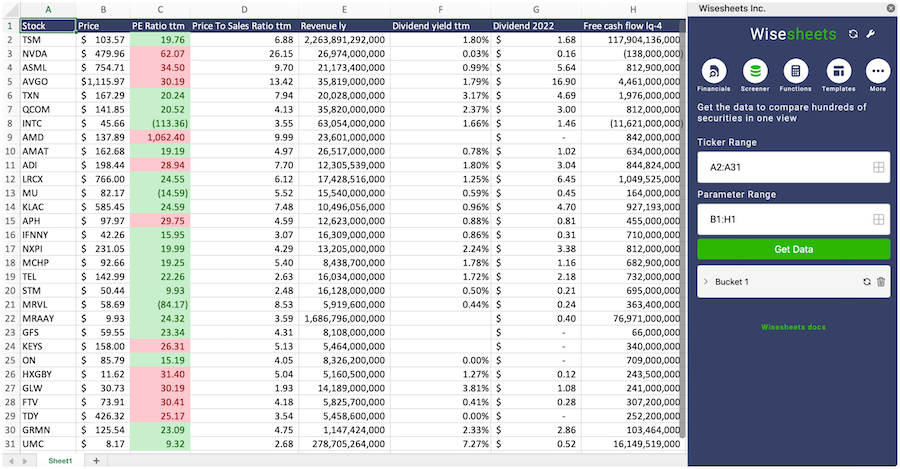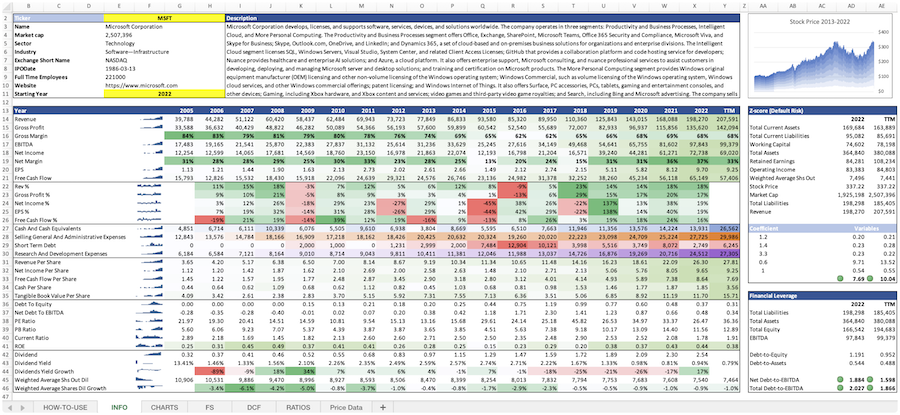Glanbia plc
GL9.IR
Price:
$14.46
Market Cap:
$3.68B
Glanbia plc operates as a nutrition company worldwide. The company manufactures and sells sports nutrition and lifestyle nutrition products in various formats, including powders, ready-to-eat bars and snacking foods, and ready-to-drink beverages through various channels, such as specialty retail, online, and gyms, as well the food, drug, mass, and club channels. It engages in the manufacture and sale of cheese, dairy, and non-dairy nutritional and functional ingredients, and vitamin and mineral premixes. In addition, the company engages in the financing, research and development, property and land dealing, receivables management, management, property leasing, business service, and weight man...[Read more]
Industry
Packaged Foods
IPO Date
2000-06-07
Stock Exchange
DUB
Ticker
GL9.IR
PE Ratio
[36.15]
ROE
[5.46%]
Current Ratio
[1.67]
Dividend Yield
[2.80%]
Enterprise Value
[4.33B]
Dividend History
The PE Ratio as of December 2025 (TTM) for Glanbia plc (GL9.IR) is 36.15
According to Glanbia plc’s latest financial reports and current stock price. The company's current PE Ratio is 36.15. This represents a change of 104.57% compared to the average of 17.67 of the last 4 quarters.
Glanbia plc (GL9.IR) Historical PE Ratio (quarterly & annually)
How has GL9.IR PE Ratio performed in the past?
The mean historical PE Ratio of Glanbia plc over the last ten years is 17.82. The current 36.15 PE Ratio has changed 20.19% with respect to the historical average. Over the past ten years (40 quarters), GL9.IR's PE Ratio was at its highest in in the December 2024 quarter at 44.96. The PE Ratio was at its lowest in in the June 2009 quarter at 2.86.
Average
17.82
Median
17.82
Minimum
11.00
Maximum
25.22
Glanbia plc (GL9.IR) PE Ratio by Quarter and Year
Discovering the peaks and valleys of Glanbia plc PE Ratio, unveiling quarterly and yearly fluctuations to gain insights into the company’s financial performance and market dynamics, offering valuable data for investors and analysts alike.
Maximum Annual Increase = 76.66%
Maximum Annual PE Ratio = 25.22
Minimum Annual Increase = -47.36%
Minimum Annual PE Ratio = 11.00
| Year | PE Ratio | Change |
|---|---|---|
| 2024 | 21.84 | 76.66% |
| 2023 | 12.36 | -29.35% |
| 2022 | 17.50 | -8.20% |
| 2021 | 19.06 | 8.56% |
| 2020 | 17.56 | 19.95% |
| 2019 | 14.64 | -19.06% |
| 2018 | 18.08 | 64.35% |
| 2017 | 11.00 | -47.36% |
| 2016 | 20.91 | -17.12% |
| 2015 | 25.22 | 11.16% |
Glanbia plc (GL9.IR) Average PE Ratio
How has GL9.IR PE Ratio performed in the past?
The current PE Ratio of Glanbia plc (GL9.IR) is greater than its 3-year, greater than its 5-year, and greater than its 10-year historical averages
3-year avg
17.23
5-year avg
17.66
10-year avg
17.82
Glanbia plc (GL9.IR) PE Ratio vs. Peers
How is GL9.IR’s PE Ratio compared to its peers?
Glanbia plc’s PE Ratio is greater than Oyang Corporation (22.07), greater than Bank of Ireland Group plc (11.03), greater than Glanbia plc (35.76), greater than Glanbia plc (35.76), greater than Kingspan Group plc (26.48), greater than Kerry Group plc (22.64),
| Company | PE Ratio | Market cap |
|---|---|---|
| 22.07 | $89.33B | |
| 11.03 | $15.70B | |
| 35.76 | $4.27B | |
| 35.76 | N/A | |
| 26.48 | $13.64B | |
| 22.64 | $12.43B |
Build a custom stock screener for Glanbia plc (GL9.IR) and other stocks
One of the best ways to find valuable stocks to invest in is to build a custom made screener in your Excel or Google Sheets spreadsheet. This allows you to compare thousands of companies like Glanbia plc using the financials and key metrics that matter to you in a single view.
The easiest way to set this up is to use the Wisesheets add-on and set your spreadsheet like this:
Covering all these metrics from financial, data, dividend data, key metrics and more you can get all the data you want for over 50+ exchanges worldwide.
Get your free trial here.
Glanbia plc (GL9.IR) and other stocks custom spreadsheet templates
The easiest way to analyze a company like Glanbia plc or any others is to create a spreadsheet model that automatically retrieves all of the stock data you need.
Using Wisesheets you can set up a spreadsheet model like this with simple spreadsheet formulas. If you change the ticker you can get all of the data automatically updated for you.
Whether you need live data, historical price data, financials, dividend data, key metrics, analyst estimates, or anything else...Wisesheets has you covered.
Frequently asked questions❓
What is the PE Ratio?
How can you use the PE Ratio?
What is Glanbia plc's PE Ratio?
How is the PE Ratio calculated for Glanbia plc (GL9.IR)?
What is the highest PE Ratio for Glanbia plc (GL9.IR)?
What is the 3-year average PE Ratio for Glanbia plc (GL9.IR)?
What is the 5-year average PE Ratio for Glanbia plc (GL9.IR)?
How does the current PE Ratio for Glanbia plc (GL9.IR) compare to its historical average?

